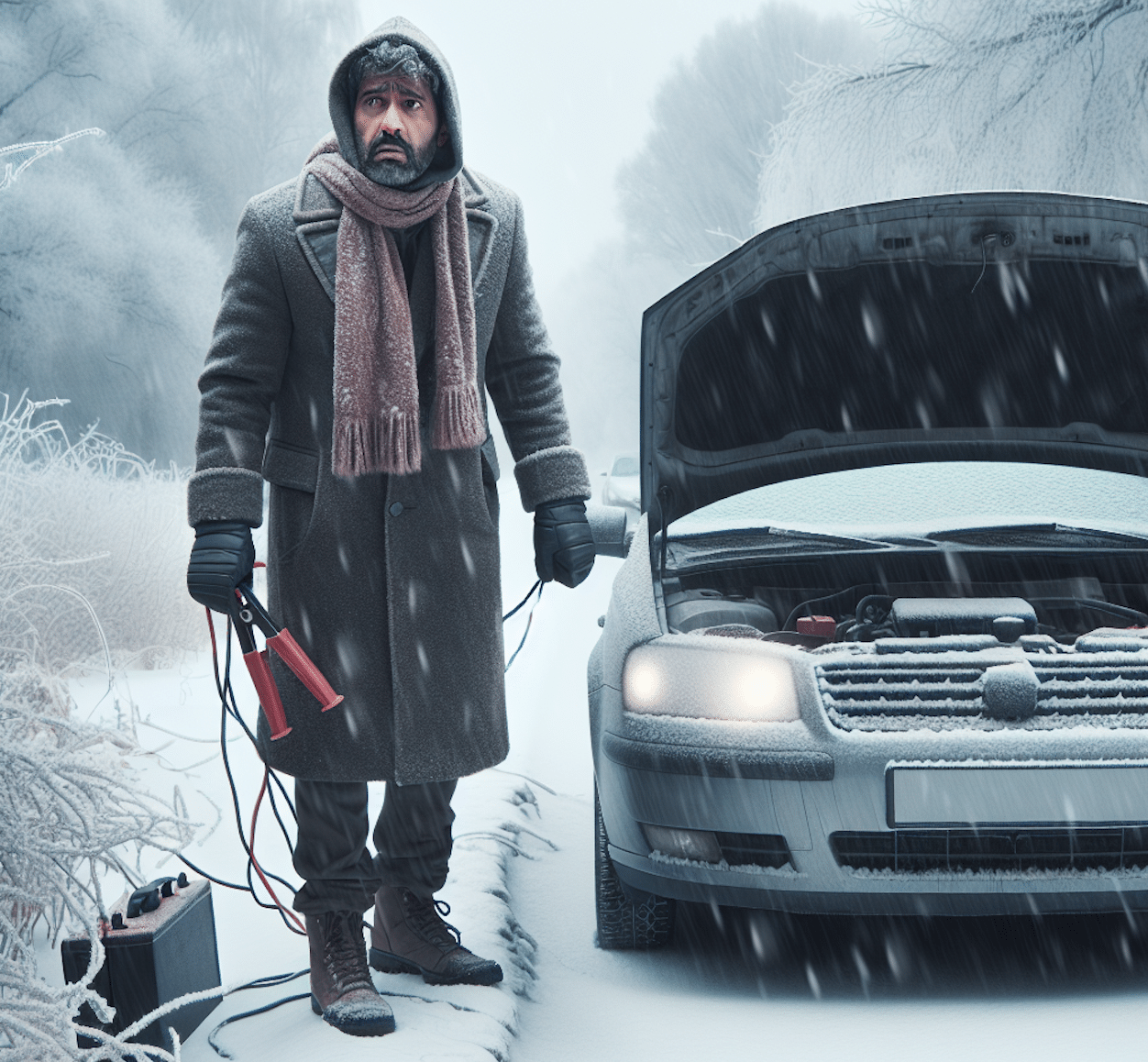As the temperature drops, car owners often find themselves turning their keys or pushing the ignition button only to be greeted by silence, or, at best, a sluggish crank. In fact, it’s frustrating when your car won’t start on a chilly morning, especially when you’ve made the effort to ensure the battery is in good shape. The truth is that several factors can prevent an engine from firing up in cold weather, regardless of the battery’s health. In this article, we’ll explore the main reasons why your vehicle might be stubborn when it’s cold outside and what you can do to remedy the situation.
Understanding cold start problems
Cold weather starting problems are not just about the condition of your battery, even though it plays a significant role. So, when the temperature drops, chemical reactions inside your battery slow down, decreasing its ability to produce and deliver the necessary current to start your engine. However, if you’re confident that your battery is good and you’ve ruled out a dead battery as the issue, it’s time to consider other potential culprits.
Thickened engine oil
Engine oil is the lifeblood of your car’s engine, providing necessary lubrication to all moving parts. In cold weather, oil tends to thicken due to decreased temperatures which increase its viscosity. Consequently, thick oil doesn’t flow as well and puts additional strain on your battery and starter motor, making it harder for your engine to crank. So, if the oil is too thick, your car may not start even with a strong battery.
Solution: Switch to a winter-grade oil with a lower viscosity index, commonly referred to as “winter weight” oil. Most modern oils are multi-grade and can perform well in a range of temperatures, but make sure to check your car’s manual for the manufacturer’s recommendations.
Fuel delivery issues
Fuel delivery can be hindered in cold weather, especially if there’s any water vapor in the fuel line that may freeze and block the flow of gasoline to the engine. Moreover, cold fuel doesn’t vaporize as easily, which is necessary for the engine combustion process.
Solution: Keeping your gas tank at least half full can reduce the chances of water vapor building up and freezing in the fuel lines. Additionally, using a fuel additive that prevents freezing can help maintain a steady flow of gasoline.
Faulty starter motor
The starter motor might be the next suspect if your battery’s in good shape. The cold can affect the electrical components within the starter, especially if there’s wear and tear. The oil thickening issue also puts extra strain on the starter motor, which may lead to failure over time.
Solution: If you’re experiencing starter problems, you might need to get it checked and potentially replaced. During colder months, ensure all electrical connections to the starter are clean, tight, and free of corrosion.
Weak spark plugs
Spark plugs are responsible for igniting the air/fuel mixture in the combustion chamber of your engine. In colder temperatures, the efficiency of spark plugs can decrease, leading to weaker sparks or no spark at all, preventing the engine from starting.
Solution: Regular maintenance is key here. Make sure your spark plugs are in good condition, properly gapped, and replaced when necessary.
Alternator issues
The alternator charges the battery while the engine runs, but if it’s not working correctly, it may not charge the battery fully, which might lead to starting problems as the battery won’t have enough power to crank the engine in the cold.
Solution: Have your charging system checked regularly, especially before the onset of winter, to ensure it’s operating properly.
Preventative maintenance and tips
To avoid the dreaded non-start in cold weather, you can take several proactive steps to ensure your car is ready for the winter months.
- Regular service: Stick to your car’s servicing schedule to catch issues before they escalate into bigger problems.
- Battery check: Have your battery’s health checked before winter. A good battery at the beginning of the season can save a lot of trouble.
- Engine block heater: Consider using an engine block heater if you live in an extremely cold climate. This device warms up the engine, making it easier to start.
- Parking: Whenever possible, park your car in a garage to keep it warmer overnight.
- Drive regularly: Frequent short trips can keep the battery from fully charging. Try to drive longer distances occasionally to maintain a full charge.
Conclusion
Starting your car in the cold weather involves more than just a good battery. In fact, the cold has far-reaching effects on many components of your car, such as the engine oil, fuel system, starter motor, alternator, and spark plugs. Now, the best defense against winter woes is to stay ahead of the game with regular maintenance and check-ups, particularly before the cold sets in. Also, taking pre-winter measures can mean the difference between a car that roars to life on a frosty morning and one that stubbornly refuses to wake up from its slumber. Stay warm, and keep your car ready for those cold starts!
